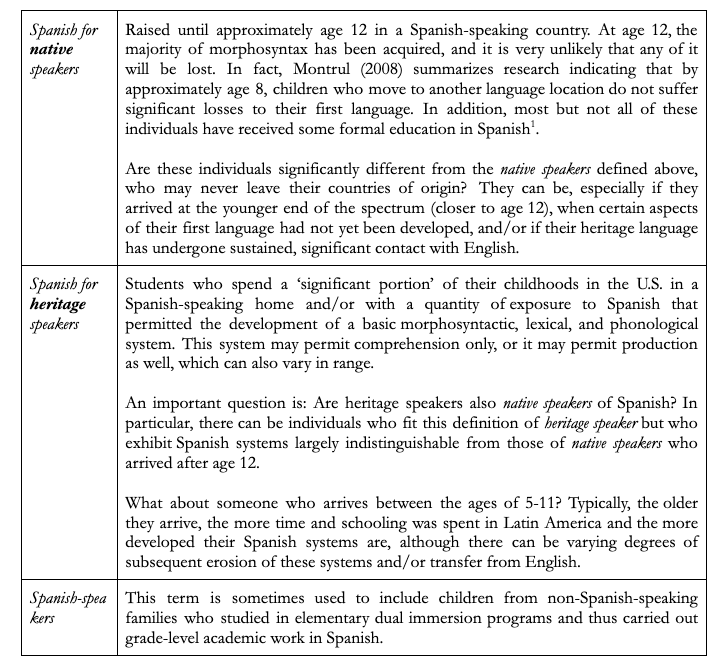What is a Native Speaker?
On terminology related to Spanish courses, Kim Potowski, 2021
Various terms are used to describe heritage speakers and the titles of language courses designed for them, including native speakers, heritage speakers, bilinguals, first language, etc. However, defining these terms is not as simple as it might seem
Some of these complications carry over into naming heritage courses in the U.S. Although programs in many languages including Chinese, Russian, and others may use one or more of the terms below, we will use Spanish in our examples. In general, it seems that the distinction between native and heritage speaker is frequently intended to help programs distinguish between those who have stronger vs weaker proficiency. The definitions below are not “official” in any sense, but rather a compilation of uses I have observed and explanations I have seen, followed by some of my comments and questions.
One can split hairs about these terms and who is really a speaker of anything, but the more important goal is to make smart and useful programmatic and curricular decisions for language courses such that they are the best fit for students.


